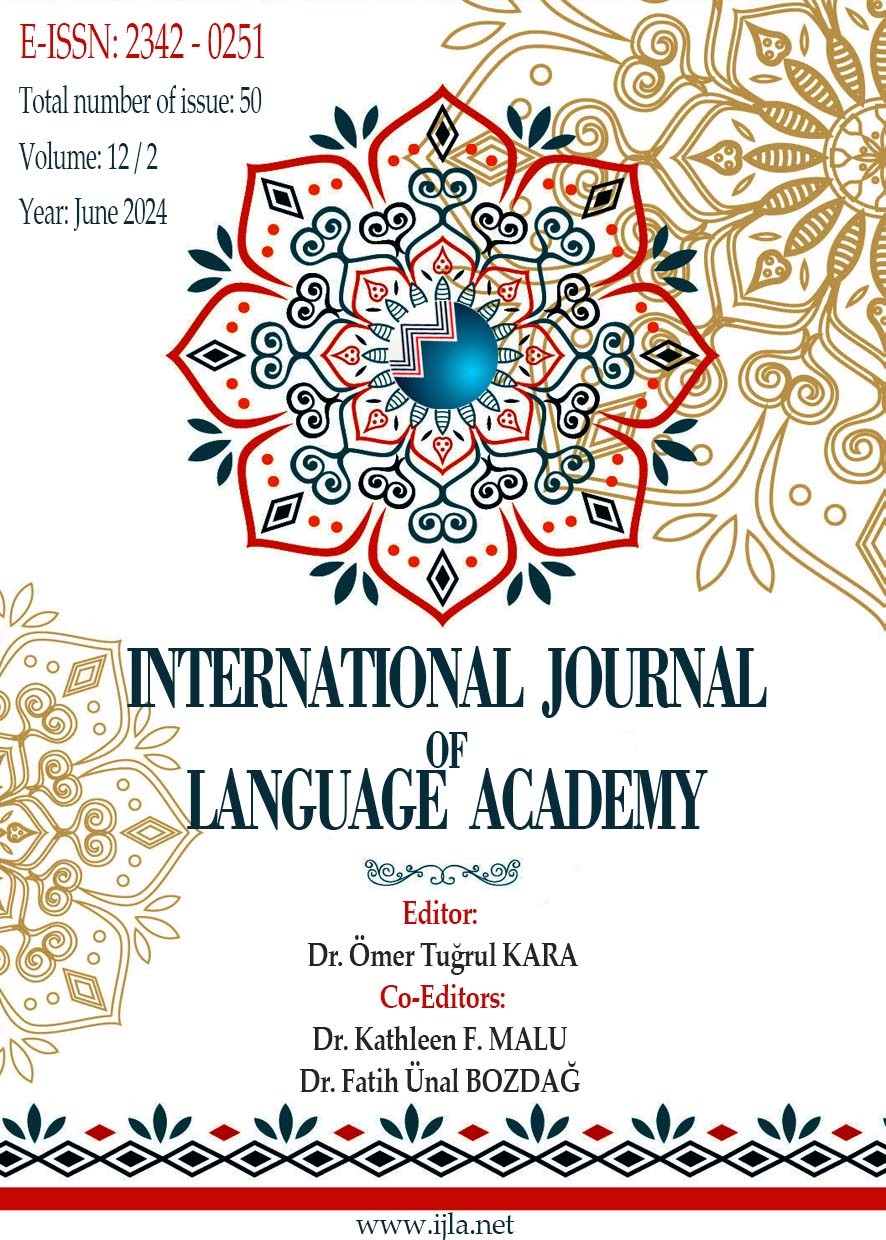2024 ORTAOKUL TÜRKÇE DERSİ ÖĞRETİM PROGRAMI İLE 2019 TÜRKÇE DERSİ ÖĞRETİM PROGRAMI’NIN KARŞILAŞTIRMALI İNCELENMESİ
Author :
Abstract
Nitel araştırma yöntemlerinden içerik analizi ile yapılandırılmış bu çalışmada 2024 yılında Türkiye Yüzyılı Maarif Modeli kapsamında yenilenen Ortaokul Türkçe Dersi Öğretim Programı’nda yer alan yeniliklerin tanıtılması ve programın, 2019 Türkçe Dersi Öğretim Programı’ndan farklılaşan yönlerinin ortaya konulması amaçlanmıştır. Bu amaç doğrultusunda 2019 ve 2024 yıllarında yayımlanan Türkçe dersi öğretim programları incelenmiş, her iki programdaki ortak unsurlar karşılaştırılmıştır. Çalışmada ayrıca daha önceki programlarda yer almayan ve 2024 programı ile gündeme gelen unsurların tanıtımı gerçekleştirilmiştir. Verilerin toplanması sürecinde doküman analizinden yararlanılmıştır. Toplanan verilerin analizi sonucunda 2024 Ortaokul Türkçe Dersi Öğretim Programı’nın 2019 Türkçe Dersi Öğretim Programı’na göre daha fazla sayfa sayısına, sınıf seviyelerinde daha fazla öğrenme çıktısına, genel olarak daha fazla temaya, değere, programlar arası bileşene, bilgilendirici ve öyküleyici metin türüne sahip olduğu; 2024 programı ile birlikte sınıf seviyelerinde işlenen toplam tema sayılarında ve toplam öğrenme çıktısı sayısında düşüş yaşandığı; tema yapılarının, dil bilgisine yönelik öğrenme çıktılarının yapısının ve genel olarak öğrenme çıktılarının niteliğinin köklü değişimlere maruz kaldığı tespit edilmiştir. Ayrıca eğilimlerin, okuryazarlık becerilerinin, sosyal-duygusal öğrenme becerilerinin, farklılaştırma faaliyetlerinin; üretim, dinleme/izleme ve okuma atölyelerinin 2024 Türkçe Öğretim Programı ile gündeme gelen yenilikler olduğu sonucuna ulaşılmıştır. Ulaşılan sonuçlardan hareketle yeni programda yaşanan değişimler açıklanmış, programın güçlü ve zayıf yönleri ele alınmıştır. Ek olarak programın daha nitelikli ve işlevsel bir hale gelmesi için program yazarlarına önerilerde bulunulmuştur.
Keywords
Abstract
In this study, which was structured by content analysis, one of the qualitative research methods, it was aimed to introduce the innovations in the Turkish Course Curriculum, which was renewed in 2024 within the scope of the Türkiye Century Education Model, and to reveal the differentiating aspects of the curriculum from the 2019 Turkish Course Curriculum. For this purpose, Turkish language teaching curriculums published in 2019 and 2024 were examined and the common elements in the two curriculums were compared. On the other hand, the elements that were not included in the previous curriculums and came to the agenda with the 2024 curriculum were introduced. Document analysis was used in the data collection process. As a result of the analysis of the collected data, it was determined that the 2024 Turkish Course Curriculum has more pages, more learning outcomes at grade levels, more themes, values, cross-curricular components, informative and narrative text types in general compared to the 2019 Turkish Course Curriculum; with the 2024 curriculum, there was a decrease in the total number of themes and the total number of learning outcomes covered at grade levels; theme structures, the structure of learning outcomes for grammar and the quality of learning outcomes in general were subjected to radical changes. In addition, it was concluded that tendencies, literacy skills, social-emotional learning skills, differentiation activities; production, listening/watching and reading workshops are the innovations that came to the agenda with the 2024 Turkish Course Curriculum. Based on the results, the changes in the curriculum were explained and the strengths and weaknesses of the curriculum were discussed. In addition, suggestions were made to the curriculum authors to make the curriculum more qualified and functional.





